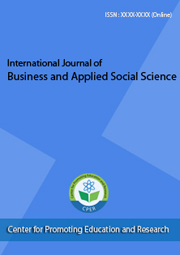Journal Menu
current
VOLUME: 11; ISSUE: 3; MARCH: 2025
Table of Contents
Articles
Author(s): Nermin Gouhar
Full Text
981 1271
981 1271
Abstract:
Purpose: This research investigates the effects of firm-created marketing communication (social media advertising, sales promotion, and interactive marketing) and user-created marketing communication (social media word-of-mouth) on consumer-based brand equity, focusing on the mediation role of product development in Egypt.Design/Methodology: A quantitative approach was employed, gathering data through questionnaires distributed to employees and managers in marketing agencies across Egypt. The sample comprised 479 employees and managers of marketing agencies in Egypt selected using non-random sampling techniques. The gathered data was analyzed by using descriptive statistics and inferential techniques, including correlation and structural equation modeling to test the research hypotheses.
Findings: The findings revealed that firm-created marketing communication significantly enhances consumer-based brand equity, with strong positive correlations observed across various components, including brand awareness and loyalty. User-created marketing communication was also found to positively impact brand equity, underscoring its importance in shaping consumer perceptions. Additionally, the study confirmed that both firm-created marketing communication and user-generated content play vital roles in facilitating effective product development, which in turn enhances brand equity.
Originality/Value: This study provides critical insights for marketers and businesses operating in the Egyptian market, emphasizing the need for tailored marketing communication strategies that effectively enhance consumer-based brand equity. By understanding the interplay between marketing communication and product development, organizations can better engage their target audiences and strengthen brand perceptions.






